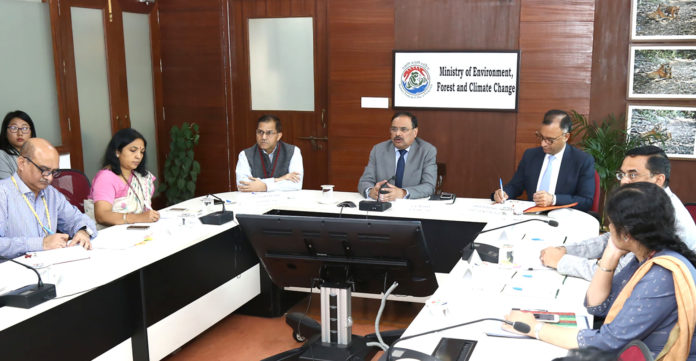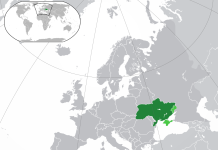
Studies on Impact of Climate Change
By PIB Delhi
India is a Party to the United Nations Framework Convention on Climate Change (UNFCCC). India has submitted Initial National Communication (INC) in 2004 and Second National Communication (SNC) in 2012 to the UNFCCC. As part of the National Communications, the Ministry conducted studies on impact of climate change in India which are summarized in the ‘Vulnerability Assessment and Adaptation’ chapters. For the SNC, climate change scenarios were analysed using high-resolution regional climate model. Simulations for 2020s, 2050s and 2080s indicate an all-round warming for Indian subcontinent. Impact of climate change and climate variability on the water resources are likely to affect irrigated agriculture, installed power capacity, environmental flows in the dry season and wet season.
There is paucity of data to establish direct correlation of climate change with diseases and deaths. However, reports of Intergovernmental Panel on Climate Change (IPCC), World Health Organization (WHO) and other widely available literature indicate health impacts of various climate variables including extreme weather events, air pollution, change in precipitation etc. Various climate model simulation studies also project possible linkages of climate change with frequency and intensity of weather events.
Weather extremes in India in the recent years (2014-2017), as reported under second Biennial Update Report (2018), is given below:
Weather Extreme in India in the recent years (2014-2017)
Temperatures Year Month Event Details 2014 Jan-Dec Severe cold wave/cold wave Cold wave/fog related incidents in northern parts of the country. May-Jun Heat wave Intense heat wave events which prevailed over northeastern, central and peninsular parts of the country. 2015 May-Jun Severe heat wave Severe heat wave incidences over the south peninsula and eastern parts of the country including the States of Andhra Pradesh, Telangana and Odisha. 2016 Mar-May Severe heat wave Intense heat wave conditions which prevailed over northeaster, Central and peninsular parts of the country. 2017 Mar-Jun Severe heat wave Severe heat wave conditions which prevailed mainly over peninsular parts of the country including Andhra Pradesh and Telangana. Precipitation 2014 Mar Hailstorm Unprecedented widespread hailstorm in Maharashtra and parts of central India in the first week of March severely affected crops, livestock, animals and birds. Sep Heavy rainfall resulting in floods Heavy floods in the State of Jammu and Kashmir; Several thousand villages across the state were hit. 2015 Apr-Aug Nor’ wester, Lightening and Heavy rainfall resulting in floods A severe Nor’ wester ravaged 12 districts of Bihar during April. Gujarat State suffered with flood and heavy rains in June. Flood-related incidence also occurred in West Bengal from June to August. Nov-Dec Heavy rainfall Very heavy rainfall during northeast monsoon season in Tamil Nadu and Andhra Pradesh. 2016 Jul-Sep Heavy rainfall resulting floods Heavy rains and floods in State of Maharashtra caused the ‘Mahad bridge collapse’ incident in August. Flood-related incidences also occurred in ‘State of Bihar from 25the July to 3rd September. Cloudburst and landslides also occurred in Uttarakhand in July. 2017 May-Oct Lightning and Heavy rainfall resulting floods Lightning and rainfall events caused loss of life in various parts of Odisha from May to October; in Bihar from May to July, and; in Maharashtra in June and October. Jul-Sep Flood and heavy rains caused loss of life in Gujarat. Flood-related incidence, a massive landslide caused deaths at Kotrupi, Himachal Pradesh on 13th August. Floods in Ghaghara, Gomati and Rapti rivers also claimed lives during 4th to 10th September. Cyclones 2014 Jun Cyclonic Storm Nanauk over the Arabian Sea The storm caused heavy rainfall over Lakshadweep, Kerala and coastal Karnataka. Oct Very Severe Cyclonic Strom, Hudhud, over the Bay of Bengal Caused human and animal death in north Andhra Pradesh. It caused very heavy rainfall over north Andhra Pradesh and south Odisha and strong gale winds leading to large-scale structural damage over north Andhra Pradesh and adjoining districts of south Odisha. Oct Very severe Cyclonic Storm, Nilofar, over the Arabian sea Under the influence of system. Konkan and Goa region experienced widespread rain with heavy rainfall at isolated places. 2015 Jun Cyclonic Storm, Ashobaa, over the Arabian Sea No adverse weather was reported due to this system. Jul Cyclonic Storm, Komen, over the Bay of Bengal Loss of life due to cyclonic storm, Komen’ in West Bengal and Odisha. Landslides also claimed lives in Manipur. Oct Extremely severe cyclonic storm, Chapala over the Arabian Sea No adverse weather over west coast of India was reported due to this system. Nov Extremely severe, cyclonic storm, Megh, over the Arabian Sea No adverse weather over west coast of India was reported due to this system. 2016 May Cyclonic Storm, Roanu over the Bay of Bengal It caused adverse weather like heavy rain and strong wind all along east coast of Sri Lanka and India ( including Tamil Nadu, Andhra Pradesh, Karnataka, Rayalseema, Odisha, Gangetic West Bengal, Assam, Meghalaya, Nagaland, Manipur, Tripura) Oct Cyclonic storm Kyant over the Bay of Bengal The system caused rainfall at isolated places over Tamil Nadu, Puducherry and coastal Andhra Pradesh. Nov Cyclonic storm Nada over the Bay of Bengal The system caused heavy rainfall at isolated places over Tamil Nadu and Puducherry. Dec Very Severe Cyclonic storm, Vardah over the Bay of Bengal ‘Vardah’ caused heavy to very heavy rainfall over Andaman & Nicobar Islands. It also caused extremely heavy rainfall over Chennai, Thiruvallur, Kanchipuram districts of Tamil Nadu. It caused human and animal death in Tamil Nadu. 2017 Apr Cyclonic storm Maarutha over the Bay of Bengal The system caused heavy rainfall over Andaman & Nicobar Islands. May Severe cyclonic storm ‘Mora’ over the Bay of Bengal ‘Mora’ developed in the onset phase of southwest monsoon. The system caused heavy rainfall at isolated places over Arunachal Pradesh, Manipur, Nagaland, Mizoram and Tripura and a few Places over Assam and Meghalaya. Nov Very Severe Cyclonic Storm “Ockhi” over the Bay of Bengal It was a rare cyclone with rapid intensification after the genesis stage. It caused isolated heavy rainfall over south Tamil Nadu and over south Kerala. It caused heavy to very heavy rainfall over Lakshadweep and heavy rainfall over north coastal Maharashtra and adjoining south coastal Gujarat.
Apart from National Disaster Management Authority (NDMA) each State has its own State Disaster Management Authority to deal with such events.NDMA has issued several disaster specific guidelines for managing extreme weather-related disasters such as cyclones, floods and heat wave. National Disaster Management Plan (NDMP) has been formulated to assist all stakeholders including State Governments in disaster risk management of various hazards including hazards related to climate change.
Climate change is a global challenge and requires efforts by all nations based on the principle of Common but Differentiated Responsibility and Respective Capabilities. Government of India is committed towards combating climate change at the highest level through its several programs and schemes.
The National Cyclone Risk Mitigation Project (NRCMP) is under implementation in eight coastal states to mitigate the sufferings of the coastal community. Cyclone shelters and early warning system created under this project proved to be of great help during cyclones ‘Phailin’ in 2013, ‘Hud-Hud’ in 2014, ‘Titli’ in 2018 and cyclone ‘Fani’ in 2019.
Under National Monsoon Mission, the Ministry of Earth Sciences has set up state of the art dynamical prediction systems for short, medium & extended range forecasts and seasonal forecasts. This has helped to upgrade early warning system so that advance warning is available with concerned agencies to prepare themselves for mitigating adverse impacts of extreme weather events.
The Government is implementing National Action Plan on Climate Change (NAPCC) which comprises eight missions in specific areas of solar energy, energy efficiency, water, agriculture, Himalayan ecosystem, sustainable habitat, green India and strategic knowledge on climate change. NAPCC provides an overarching framework for all climate actions. Thirty three States/Union Territories (UTs) have prepared their State Action Plan on Climate Change in line with NAPCC taking into account State’s/UT’s specific issues relating to climate change. Under the Paris Agreement, India has submitted Nationally Determined Contributions (NDC) with target to reduce the emissions intensity of its Gross Domestic Product (GDP) by 33 to 35 % by 2030 from 2005 level, to achieve about 40% cumulative electric power installed capacity from non-fossil fuel based energy resources by 2030, and to create an additional carbon sink of 2.5 to 3 billion tones of CO2eq through additional forest and tree cover by 2030.
The Government is also implementing the scheme, ‘National Adaptation Fund for Climate Change’ to support adaptation measures of States/UTs in areas that are particularly vulnerable to the adverse impacts of climate change.
This information was provided by Minister of State, Ministry of Environment, Forest & Climate Change Shri Babul Supriyo in written reply to a question in Lok Sabha today.



















